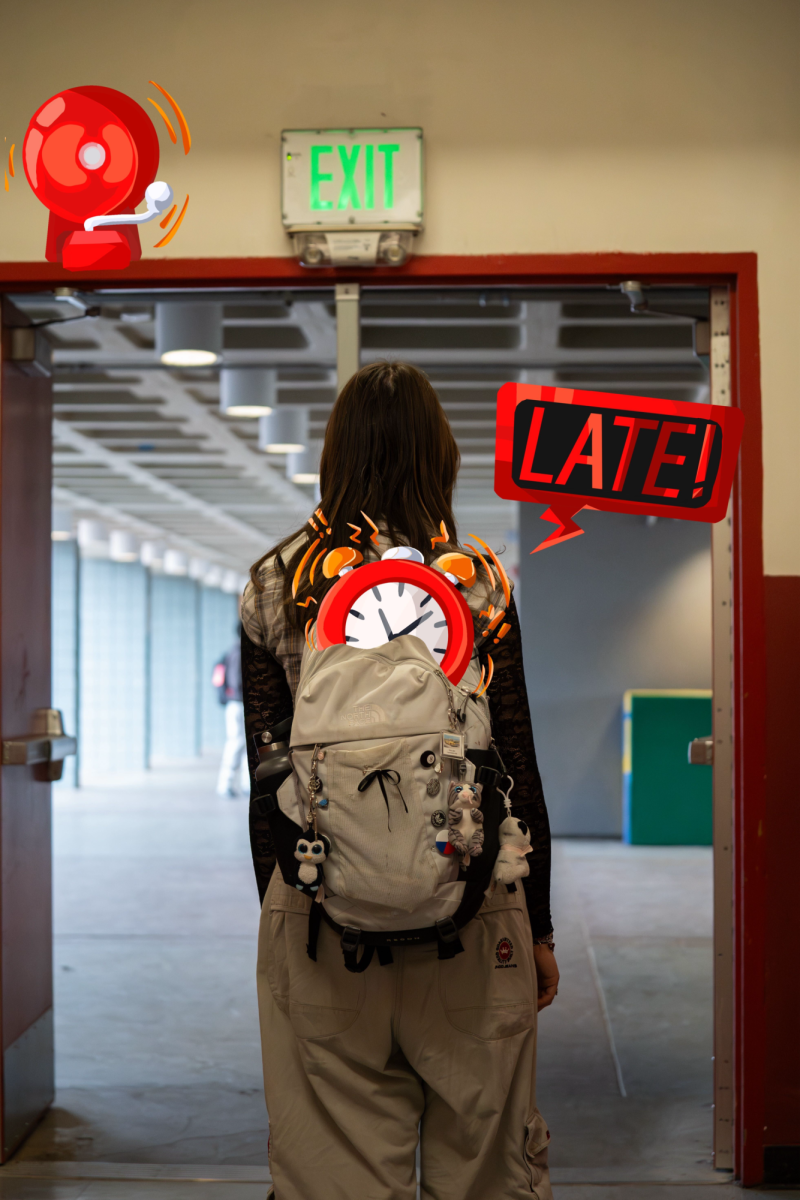
Jess, a freshman under a pseudonym, finds herself awake at 1 a.m., struggling to keep her eyes open, with a stack of textbook chapters to read and notes to take. She has been doing homework all night and the only thing that she can think about is how she wishes her teachers would give her a break. Jess is not the only student who suffers from the effects of too much homework, but there is one simple way to solve this issue. Teachers should give less homework, to better promote the wellbeing of their students.
Many claim that homework is beneficial because it provides a way for students to practice what they learned in class and it can help them get better grades. However, according to an article written by Harvard Ed Magazine, there isn’t unanimous evidence to prove this. “The fact that there isn’t anything close to unanimity among experts belies the widespread assumption that homework helps,” Alfie Kohn, the author of The Homework Myth, wrote. Numerous studies done by education scholars show that there is more evidence of negative effects of homework, such as a decrease in mental health and time for other activities, than there is evidence of the potential benefits. Thus, without many clear benefits, large amounts of homework are unnecessary and do more harm than good.
One of the most damaging effects of excessive amounts of homework is the stress that it causes for students. In a study conducted by Stanford researchers, 56 percent of the students believed homework to be their primary source of stress. The pressure to get good grades on these assignments and turn them in on time, even when deadlines are often quick and they have already spent an entire day doing class work, can be immensely damaging to students’ mental health. In addition to a psychological impact, some students feel the physical symptoms of homework-related stress too. One article by a reporter named Sarah Hill states that students can experience sleep disturbances and fatigue because of the worries they have about their homework. This can lead to other issues. In fact, prolonged stress may impact the brain’s ability to function properly, affecting memory, concentration, and cognitive skills. Because of this, while educating their students, teachers also need to take the students’ mental and physical health into consideration. With less homework, we would likely see a significant decrease in mental health issues and the ability for students to better process the information they are learning with improved focus.
Another negative impact of homework is the valuable time that it can take out of a student’s day. An article by Sunshine Learning, an organization that advocates for a stress-free school experience, explains that students need time to socialize with friends or family and do extracurriculars in order to refresh their minds. Having time for yourself is crucial to living a happy and healthy life. Many students may feel pressured to give up an extracurricular because of the large amount of homework they are burdened with. Kelilah Spirn, a freshman at Lowell High School, struggles to be on the soccer team for this reason. “It gets really hard to balance the work with all of my soccer practices,” Spirn said. Spirn is just one example of how homework can make it difficult for some students to pursue their passions, showing that it can severely hinder their everyday lives.
Until teachers can fully realize the negative influence that homework has on their students’ health, many children and teenagers may continue to struggle, but the solution to this is within arm’s reach. Teachers can lift a painful burden off the shoulders of hundreds of students by limiting the amount of homework they give out. This could mean having homework that takes no longer than a total of one hour a day, or possibly even less than 30 minutes a day. This problem is in the teachers’ hands and a change needs to happen soon, whether that means getting rid of homework altogether or simply lessening the workload. “I just want to be able to take a break from the stress of school when I get home, so I really, really hope they will take our feelings into account one day,” Jess said.



















